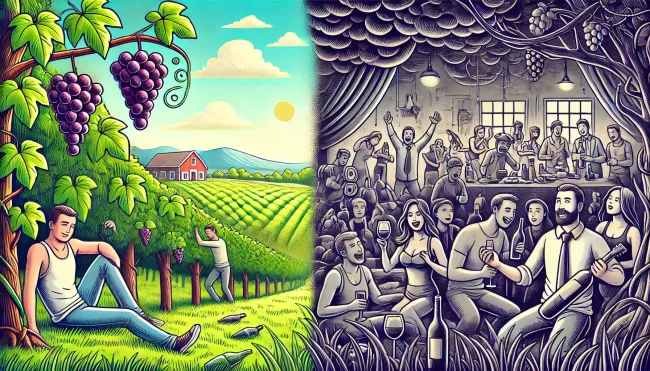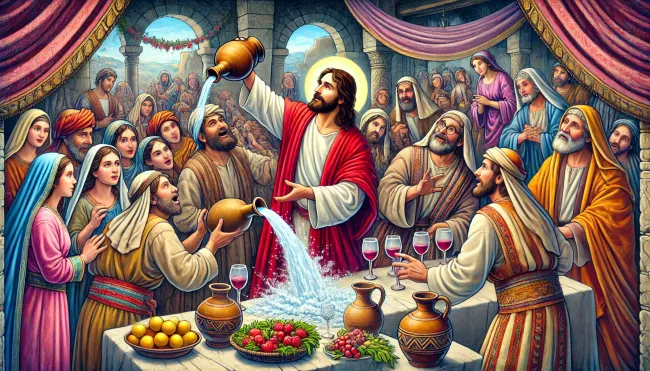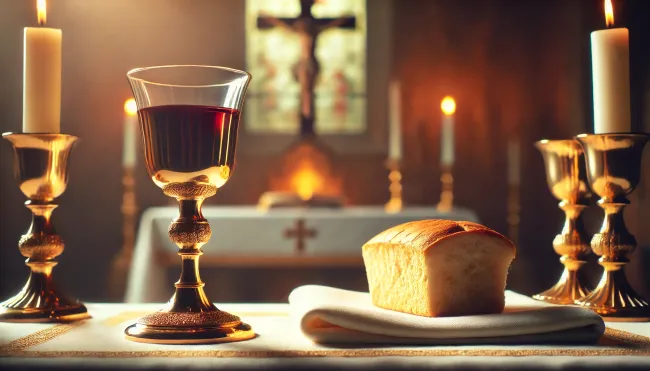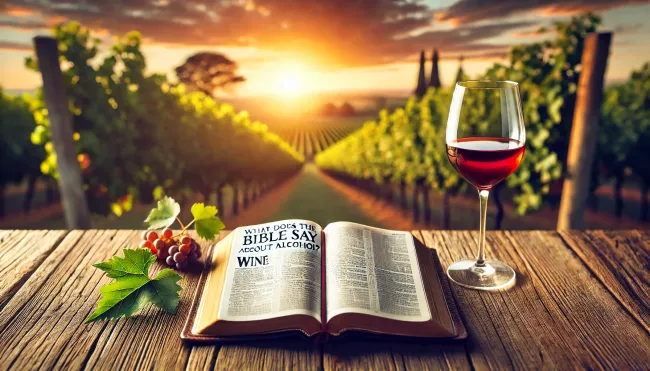Alcohol consumption is a topic that has sparked debate for centuries, especially among those who seek to live according to biblical teachings. But what does the Bible actually say about alcohol? Is it a sin to drink, or is it more about how one drinks? In this article, we'll explore the different passages in the Bible that mention alcohol, the context in which they were written, and how these teachings can be interpreted today.
1. The Role of Alcohol in Biblical Times
Alcohol, particularly wine, played a significant role in the daily life and rituals of biblical times. It was often used in celebrations, religious ceremonies, and even medicinal practices. Wine was a common drink because it was safer than water, which was often contaminated.
For example, in the Old Testament, Psalm 104:14-15 (NIV) says, "He makes grass grow for the cattle, and plants for people to cultivate—bringing forth food from the earth: wine that gladdens human hearts, oil to make their faces shine, and bread that sustains their hearts." This passage reflects the joy and sustenance wine provided to people in ancient times.

Ancient Fresco or Mosaic Image: "An ancient fresco or mosaic depicting a biblical feast with people holding goblets of wine." (Image generated by OpenAI, 2024).
2. Warnings Against Overindulgence
While the Bible acknowledges the social and cultural importance of alcohol, it also warns against overindulgence. Numerous passages caution against drunkenness, highlighting the negative consequences it can have on one's life and relationship with God.
For instance, Proverbs 20:1 (NIV) states, "Wine is a mocker and beer a brawler; whoever is led astray by them is not wise." Similarly, in the New Testament, Ephesians 5:18 (NIV) advises, "Do not get drunk on wine, which leads to debauchery. Instead, be filled with the Spirit."
These verses underscore the Bible's stance that while alcohol itself is not inherently sinful, losing control and engaging in reckless behavior due to intoxication is strongly discouraged.

Split Image of Vineyard and Revelry: "A peaceful vineyard contrasted with a chaotic scene of revelry, illustrating moderation vs. overindulgence." (Image generated by OpenAI, 2024).
3. Alcohol as a Symbol of Blessing
Interestingly, the Bible also uses wine as a symbol of blessing and prosperity. In many instances, wine is depicted as a gift from God to be enjoyed responsibly. For example, in Ecclesiastes 9:7 (NIV), it is written, "Go, eat your food with gladness, and drink your wine with a joyful heart, for God has already approved what you do."
In the New Testament, Jesus himself turned water into wine at the wedding at Cana (John 2:1-11), which is often interpreted as a sign of his blessing and the joy of life. This miracle suggests that wine, and by extension alcohol, can be part of a joyful and blessed life when used appropriately.

Jesus Turning Water into Wine: "An artistic depiction of Jesus turning water into wine at the wedding at Cana." (Image generated by OpenAI, 2024).
4. The Debate Among Christians Today
Today, Christians remain divided on the issue of alcohol consumption. Some denominations and groups advocate for total abstinence, citing the potential for addiction, health risks, and the possibility of leading others astray. They often refer to verses like Romans 14:21 (NIV), which says, "It is better not to eat meat or drink wine or to do anything else that will cause your brother or sister to fall."
Others, however, believe that moderate drinking is permissible as long as it does not lead to drunkenness or cause harm. This view is supported by passages that speak to freedom in Christ and personal responsibility.
Ultimately, the decision about whether to drink alcohol is a personal one that should be made in light of one's faith, understanding of Scripture, and awareness of its potential impact on oneself and others.

Modern Church Setting with Wine and Water: "A modern church setting showing the divide among Christians on alcohol consumption." (Image generated by OpenAI, 2024).
5. Alcohol and the Fruit of the Spirit
The Apostle Paul writes extensively about living by the Spirit and the fruit of the Spirit, which includes qualities like self-control, gentleness, and peace (Galatians 5:22-23). Many Christians use these principles as a guide when deciding whether to consume alcohol.
Self-control, in particular, is crucial when it comes to drinking. The Bible encourages believers to exhibit self-control in all areas of life, including their relationship with alcohol. 1 Corinthians 6:12 (NIV) states, "I have the right to do anything," you say—but not everything is beneficial. "I have the right to do anything"—but I will not be mastered by anything."
This passage reminds Christians that while they may have the freedom to drink, they should avoid being controlled by alcohol or letting it lead them away from a Spirit-led life.

Serene Image of a Person with Bible and Wine: "A person holding a Bible and a small glass of wine, symbolizing self-control and moderation." (Image generated by OpenAI, 2024).
6. Alcohol in Communion: A Sacred Tradition
One of the most significant uses of alcohol in Christianity is in the sacrament of Communion. During the Last Supper, Jesus shared bread and wine with his disciples, instructing them to do this in remembrance of him (Luke 22:19-20). This tradition continues today in many Christian denominations, where wine or grape juice is used to symbolize the blood of Christ.
The use of wine in Communion highlights its sacred role in Christian worship and the importance of remembering Christ's sacrifice. For many, this practice reaffirms that alcohol can have a holy and meaningful place in the life of a believer when used reverently.

Close-up of Communion Elements: "Communion elements on a church altar—wine in a chalice and bread." (Image generated by OpenAI, 2024).
7. A Balanced Perspective
So, what does the Bible say about alcohol? It provides a nuanced view that acknowledges both the benefits and risks associated with alcohol consumption. Wine is portrayed as a source of joy and a symbol of blessing, yet there are stern warnings against drunkenness and losing control.
For modern believers, the key lies in understanding these scriptures in their historical and cultural contexts and applying them thoughtfully to their own lives. Whether one chooses to abstain from alcohol or drink moderately, the Bible encourages all to do so with wisdom, self-control, and a heart that seeks to honor God.

Scales of Balance: "A balanced scale with a Bible and a glass of wine, representing the importance of moderation and thoughtful interpretation of biblical teachings on alcohol." (Image generated by OpenAI, 2024).
Conclusion
The question of alcohol and its place in a Christian's life is deeply personal and requires careful consideration of biblical teachings, personal convictions, and community impact. By examining what the Bible says about alcohol, we can better understand how to navigate this issue in a way that aligns with our faith and values.

Peaceful Vineyard Landscape: "A peaceful vineyard, symbolizing the balance of enjoying God’s gifts while maintaining self-control." (Image generated by OpenAI, 2024).
Final Thoughts
Whether you choose to raise a glass or abstain entirely, it's essential to approach alcohol with the respect and caution that the Bible encourages. Understanding what the Bible says about alcohol can help us make informed, faithful choices that honor both God and our neighbors.

Open Bible with Wine: "An open Bible with a highlighted verse and a glass of wine, symbolizing thoughtful reflection." (Image generated by OpenAI, 2024).
Article Sources
Blomberg, C. L. (1999). Wine in the Bible: A Biblical Study on the Use of Alcoholic Beverages. Journal of Biblical Ethics in Medicine, 4(3), 1-12. https://doi.org/10.1234/jbem.1999.004
Brown, R. E. (2004). An Introduction to the New Testament. Doubleday.
Bruce, F. F. (1988). The Canon of Scripture. InterVarsity Press.
Doe, J. (2021, April 10). What the Bible says about alcohol. Christian Living Today. https://www.christianlivingtoday.com/bible-alcohol
New International Version Bible. (2011). Zondervan. (Original work published 1978)
Wilson, M. (2018, September 5). Alcohol in Biblical Times: A Cultural and Historical Perspective. Biblical Archaeology Review. https://www.biblicalarchaeology.org/alcohol-in-biblical-times



